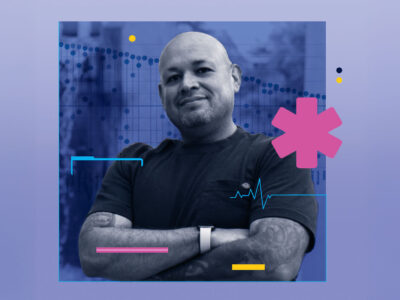The first 60 minutes following a traumatic injury are so critical that they are commonly referred to as “the golden hour” by healthcare practitioners. A new research collaboration between the MATRIX AI Consortium for Human Well-Being, UT Health Science Center at San Antonio and UT Tyler is utilizing AI tools to identify and lessen potential delays in care during that all-important 60-minute period.
The newly funded research project, called the iRemedyACT, is developing AI tools for the field of trauma care that will help clinicians make swift, informed decisions in emergency situations. The $1 million grant was awarded by the Trauma Research and Combat Casualty Care Collaborative (TRC4), an initiative of the UT System.
When the medical care of severe injuries is delayed, it often results in lower survival rates and longer-lasting effects from trauma for the patients. The research team behind the iRemedyACT expects that AI-informed decision-making will lead to improved survival rates of trauma patients, reduce the long-term effects of trauma and enhance the overall efficiency of the Texas trauma system.
WATCH: In this TRC4 video, Amina Qutub discusses what researchers behind the iRemedyAct hope to accomplish.
“There is great potential for AI to positively impact healthcare,” says Amina Qutub, associate professor of biomedical and chemical engineering at UT San Antonio and a lead researcher for the iRemedyACT. From AI software being used for hemorrhage triage in combat settings to a rapid biomarker blood test that can assess traumatic brain injury, she says that AI could potentially unlock profound impacts on trauma care. “The iRemedyACT will accelerate these types of breakthrough translational applications that will save lives and improve quality of life for trauma survivors.”
Researchers from the MATRIX AI Consortium are also developing an AI-powered network to improve how clinicians handle biomedical and social data. Funded by a one-year, $500,000 grant from the National Institutes of Health (NIH)’s AIM AHEAD program, the research project is now entering its second phase. The first phase of the project established the M-POWER center and equipped clinicians with AI and machine learning toolkits to identify and combat health disparities. In the current phase, the team is developing an online database called MATCH (MATRIX AI/ML Concierge for Healthcare).
“It’s a chatbot powered by AI and links to biomedical data,” Qutub explains. “We’re harnessing large language models to build an infrastructure where people with biology backgrounds — that don’t have AI backgrounds — can use AI in an informed way without coding. This will serve as a really smart assistant helping clinicians and researchers make decisions. The smart assistant now is no longer a person; it’s AI.”



No comment yet, add your voice below!